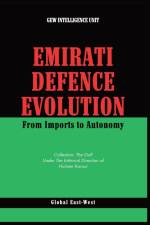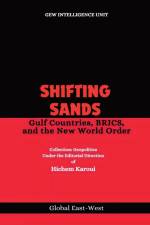av Gew Intelligence Unit
299,-
In contrast to the West, the BRICS+ consortium (Argentina, Brazil, China, Egypt, Ethiopia, India, Iran, Russia, Saudi Arabia, South Africa, and the United Arab Emirates) is widely acknowledged as an embodiment of the broader phenomenon known as the "Rise of the Rest." This occurrence, which is representative of modern-day global affairs, signifies the progressive development of the economic, political, and military capabilities of specific nations and their coalitions. As a result, the Western powers' formerly hegemonic dominance has notably diminished. Simultaneously, the Gulf Cooperation Council (GCC) has conventionally been regarded as an alliance that emerged during a period when cooperation between the West and countries that produced energy was crucial. However, improved connectivity between the BRICS+ and the GCC (Saudi Arabia, UAE, Qatar, Kuwait, Bahrain, and Oman) is possible, especially with Saudi Arabia and the United Arab Emirates as members, due to their complementary natures and ability to reconcile divergences. The aforementioned potential is founded upon the BRICS nations' ascent to a crucial position in global cooperation and development, in contrast to the GCC countries' ongoing dominance as primary providers of energy on an international scale. The potential exists for these blocs to strengthen their individual positions on the international stage through the amalgamation. This dynamic environment presents a thought-provoking subject for analysis, in which the interplay between GCC and BRICS dynamics takes place while the United States maintains its prominent position as a global actor. Amid the persistent power struggles and significant geopolitical realignments, there is a possibility that strategic and economic convergences will arise between the GCC and BRICS, thereby exerting additional influence on the global geopolitical arena. The objective of this book is to comprehensively examine the evolving dynamics between the GCC and the BRICS consortium from a variety of vantage points. Enriching and contributing to a nuanced and well-informed discourse on the evolving relationship between the GCC and the BRICS+ should be contingent on the outcome that ensues. Practical insights and actionable recommendations are prioritised in order to provide stakeholders with the necessary tools to navigate the intricate geopolitical landscape undergoing a significant transformation.




